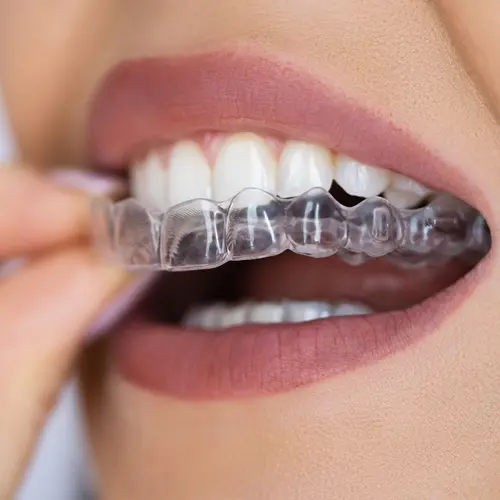Got bad breath? You may want to take a look at your diet.
If your dental hygiene is great -- you brush your teeth twice a day, floss once a day, and clean your tongue -- your bad breath could be linked to your diet.
Certain foods can taint your breath for hours and contribute to dragon breath in other ways. Here are some of the culprits:
Garlic and onions. "Garlic and onions top the list when it comes to halitosis," says Lisa Harper Mallonee, MPH, RD, associate professor at Texas A&M Health Science Center Baylor College of Dentistry.
That's because the smelly sulfur compounds in garlic and onions linger in your mouth and are absorbed in the bloodstream and expelled when you exhale.
Coffee and alcohol. Coffee and alcoholic drinks create a favorable environment for oral bacterial growth. They also have a drying effect, which reduces saliva flow and allows foul-smelling bacteria to linger longer.
Several other foods – including dairy products, a diet heavy in meat, orange juice, and soda – sometimes get talked about as bad breath triggers. Mallonee says she doesn’t have “any sound scientific evidence” about that.
Paul Vankevich, DMD, an assistant professor at Tufts University School of Dental Medicine, agrees. Any food or drink, he says, could briefly cause breath odor if it's allowed to linger in the mouth. "This is insignificant and non-consequential," Vankevich tells WebMD in an email. Brushing your mouth and your tongue gets your good breath back.
Foods and Drinks That Make Your Breath Smell Good
Water. This odor-free fluid helps flush from the mouth the bits of food bacteria feed upon. Drinking water promotes the production of saliva, which acts as a constant cleansing agent and dissolves stinky substances in food and drink.
Sugarless gum. Chewing gum loosens food and dead cells from the teeth, gums, and tongue and fosters saliva production.
Vankevich says sugar-free gum sweetened with xylitol is particularly effective for fighting bad breath because xylitol inhibits mouth bacteria.
To get the full effect of chewing xylitol-sweetened gum, munch it for at least five minutes after meals, Mallonee recommends.
Fruits and vegetables. Foods rich in vitamin C, such as red bell pepper and broccoli, create an inhospitable environment for mouth bacteria. They work even better to fight bad breath when eaten raw, as crunchy produce of any kind is mechanically abrasive and helps to loosen trapped food particles.
Yogurt: Japanese researchers found that eating about 3 ounces of sugar-free yogurt with probiotic (good) bacteria twice a day for six weeks reduced bad breath by helping to lower the levels of odor-causing sulfide compounds. To best mimic the study's effects, eat yogurt that supplies strains of streptococci and lactobacilli bacteria.
"Fortified yogurt is also great source of vitamin D, which helps reduce mouth bacteria," Mallonee tells WebMD. Other sources of vitamin D include fortified milk and orange juice, salmon, and eggs.
Herbs and spices. Parsley contains chlorophyll, which may have a deodorizing effect in the mouth. Other plant products linked to better breath include cloves, anise, and fennel seeds. While employing herbs and spices to mitigate bad breath is rooted more in folklore than science, it doesn't hurt to try.
Why Your Breath Gets Stinky
The most common cause of bad breath isn't a smelly food. It's bacteria in your mouth.
“The microbes that reside in your mouth feast on food particles and dead cells, producing sulfur compounds that cause halitosis,” Harper Mallonee says.
Brush your teeth twice a day, and floss once to remove the debris that results in bad breath, the American Dental Association advises.
“It’s also important to clean your tongue,” says Vankevich.
Masking mouth bacteria with rinses is a temporary solution to bad breath, one that Vankevich discourages. Over-the-counter rinses contain often alcohol, which dries out mouth tissues, decreases saliva production, and worsens bad breath in the long run.
Bad Breath Can Signal Medical Conditions
If your dental hygiene and your diet are in order, but your halitosis won't quit, it may be time to consult a doctor or dentist.
Bad breath can result from certain health conditions.
Blocked sinus passages and post-nasal drip may result in bad breath that will eventually pass. But Vankevich warns that persistent halitosis can be a sign of something bigger.
Periodontal disease, a serious inflammation of the gums that can cause tooth and bone damage, also causes bad breath. Certain lung conditions, kidney and liver disease, chronic irritation of the stomach and esophagus, and autoimmune disorders, such as Sjogren's syndrome, may lead to halitosis.
Chronically dry mouth, called xerostomia, contributes to oral microbial growth. Dry mouth may be caused by various medications, salivary gland problems, or continuously breathing through the mouth.
Very-low-calorie diets and high-protein eating plans promote rapid breakdown of body fat, resulting in ketoacidosis, a condition that may also be present in uncontrolled diabetes. Ketoacidosis gives breath a fruity smell.
If, despite your best efforts to control halitosis, you still suffer from it, see your doctor or dentist to rule out underlying disorders.

